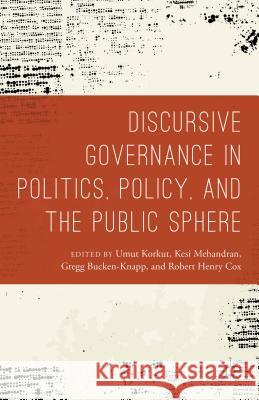Discursive Governance in Politics, Policy, and the Public Sphere » książka
Discursive Governance in Politics, Policy, and the Public Sphere
ISBN-13: 9781137495778 / Angielski / Twarda / 2015 / 235 str.
Discursive governance refers to implicit mechanisms of governance such as narratives, leitmotifs, and strategic metaphors in political language. It examines how the framing of policies affects political and social representations in accordance with the wishes of political authorities. Ad hoc discourses generate a space where politicians configure, transmit, and initiate politics ideationally, rather than vouchsafing substantial policy change with respect to governance. This book studies the dynamics of political discourse in governance processes. It demonstrates the process in which political discourses become normative mechanisms, first marking socially constructed realities in politics, second playing a role in delineating the subsequent policy frames, and third influencing the public sphere. The key contribution of this volume is tracing the discursive relationships among actors, namely governments and political parties, policy participants and societal actors, and the public in European nation states, intergovernmental organizations, subnational or regional entities, and geographies beyond Europe where European norms trigger ideational processes of change. The book extends earlier work in the field by exploring how policy and politics create social knowledge, make some ideas publicly salient, and bring together coalitions of actors that find certain policy alternatives attractive and eventually generate political and policy change.











